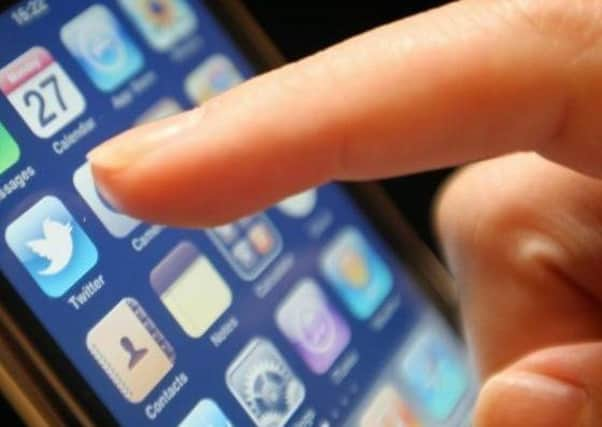Euan McColm: four-digit code helps us defy the terrorists


The 25-year-old was mown down in the street near his London barracks before his killers leapt from their car and, using knives and a cleaver, hacked him to death. The killing, in May 2013, shocked the nation, and reminded us – should that have been necessary – that the threat from extremists is real.
Michael Adebolajo and Michael Adebowale – now serving life sentences for Rigby’s murder – were raised as Christians before converting to Islam and then becoming radicalised. If, as a society, we want to tackle this kind of extremism then understanding how and why young men and women are drawn to jihadist groups is hugely important. We must know our enemies if we are to defeat them.
Advertisement
Hide AdAdvertisement
Hide AdSo, it was tempting, indeed, to agree with Rigby’s uncle when, last week, he condemned Apple for refusing to comply with a US court order to unlock an iPhone belonging to terrorist Syed Rizwan Farooq, who – along with his wife Tashfeen Malik – murdered 14 people in San Bernardino, California last December.
Since the murders, the FBI has been trying without success to examine the phone’s contents. All iPhones, once locked, can only be opened with the use of a four-digit code, meaning there are 10,000 possible combinations. The problem investigators face is that once the incorrect code has been entered 10 times, the phone’s hard drive is wiped clean.
Faced with the prospect of losing any useful information that might be on Farooq’s iPhone, the FBI turned to the law. Apple was ordered to provide “reasonable technical assistance” to allow access to the device.
But rather than acceding to this order, the computer giant went on the offensive. Apple’s chief executive Tim Cook issued an open letter to customers warning that the court order set a “dangerous precedent”.
The company is not currently able to unlock iPhones; in order for it to do so, it would have to create new software. This, wrote Cook, would weaken the security iPhone owners expect.
Smartphones, wrote Cook, have become an essential part of our lives. They’re used to store all manner of personal information, from private conversations to financial and medical information. Should Apple develop software to let the FBI open Farooq’s iPhone, then how else might it be used?
Lee Rigby’s uncle, Ray McClure, accused Apple of protecting a murderer’s privacy at the cost of public safety. If a court issued a warrant to search someone’s house, he said, then nobody would prevent that. Why should the search of a smartphone be any different?
Yet, though the arguments in favour of Apple doing as the court has commanded seem reasonable, surely the company is right to defy this order.
Advertisement
Hide AdAdvertisement
Hide AdWherever and whenever terrorists strike, our response – articulated by political leaders – is the same: we will not be cowed; we will get on with our lives as we did before. If we did not do so, then terrorists could chalk up a victory.
If, after the bombings in London in 2005, people had abandoned public transport, then that city would have ground to a halt. But people didn’t allow terrorists to influence their decisions. The terrorists didn’t win.
The same principles apply when it comes to our privacy.
The FBI might try to reassure us that it would not use the software it demands for anything other than unlocking Farooq’s iPhone, but we could be forgiven for doubting the sincerity of that pledge.
If we chip a hole in a dam, then we weaken it. We should not be surprised if that hole sends cracks across the face of the dam until it bursts.
If we value our privacy, then anything that might compromise it should trouble us.
Ray McClure made the point that future atrocities might be prevented if investigators were able to access iPhones. And I cannot argue that he is wrong in that assertion.
But then future terrorist attacks might be prevented if all manner of measures were taken. We could insist on spot-checks on the street by the military, we could make obligatory the carrying of identity cards, we could hand over the passwords to all of our email accounts to the police as a matter of course.
We don’t propose doing these things because we live in a free society, where what we think and what we do – within the law – is nobody’s business but our own.
Advertisement
Hide AdAdvertisement
Hide AdApple has won the support of other tech companies as it fights the court’s order. Google’s chief executive Sundar Pichai said that requiring companies to enable the hacking of customers’ devices would be “troubling”, while the founder of the messaging service WhatsApp, Jan Koum, argued that our freedom and liberty were at stake.
This, you might think, sounds a little melodramatic, but so much of our lives is lived online, whether it’s through the use of social networks, or the storage of personal information, that Koum’s words ring true to me.
Once information that was secure is made less so, there is no going back. We have seen this happen, time and again – usually when a hapless civil servant leaves a laptop on a train or in a café – and the implications for all of us are serious.
If we believe that Islamist terrorists despise the “Western” way of life, with its freedom and democracy, then anything that forces us to compromise on our values has to be resisted.
Syed Rizwan Farooq and Tashfeen Malik were murderers whose deaths under a hail of police gunfire will be mourned by few. They acted monstrously in the name of a faith whose followers preach peace rather than violence.
The couple’s dark legacy is the anguish of those from whom they robbed precious time with loved ones. Let’s not add to that an attack on privacy that has implications for all. «